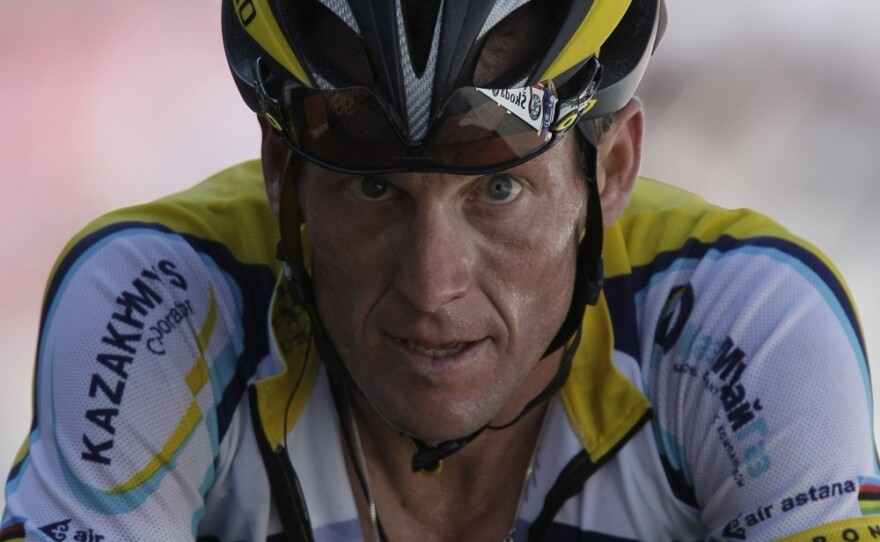Doping allegations have plagued athletes in just about every field, from cycling to baseball to sprinting. Former San Francisco Giants baseball player Barry Bonds, on trial for perjury and obstruction of justice charges related to allegations of steroid use, is only the most recent in a long string of high-profile athletes — from runner Marion Jones to cyclist Lance Armstrong — to face accusations of using illegal drugs to boost their performance.
"We have come a ways, I suppose, from the so-called steroid days, when guys were doing this stuff and it wasn't really tested for," NPR sports correspondent Tom Goldman tells NPR's Neal Conan. More athletes have been "outed" in recent years, Goldman says, "and a few have reluctantly, and kind of nebulously, admitted to doing it."
As the number of tainted sports stars has climbed, Goldman says "doping fatigue" has set in for increasing numbers of fans. "I hear a lot in my reporting that people don't care so much any more."
But while some sports watchers may see allegations of illegal drug use in athletics as somewhat old hat, those charges still have the power to taint the legacies of professional sports' biggest stars. For example, none of the major league baseball players who have been accused of doping has made it into the Baseball Hall of Fame.
"The baseball writers of America who vote in the players have been very cranky on this issue ... and there's nothing close to proof other than a body getting bigger, or maybe a surge in offensive production if you're a batter," Goldman says. "There's no sense now that baseball writers want to let these guys in."
And for those athletes who have created larger-than-life personas, such as professional cyclist Lance Armstrong, it can be problematic.
Bill Strickland, editor-at-large for Bicycling Magazine, has followed the seven-time Tour de France winner's career for many years. He had remained largely silent over allegations stretching back more than 10 years that Armstrong may have taken performance enhancing drugs — until early 2011.
"I sort of varied in whether I thought he could have ridden clean," Strickland says. "But as I looked into it recently I finally came to the conclusion that indeed he had doped."
Allegations of cheating of all kinds in professional cycling are nothing new, says Strickland.
"From the second Tour de France, the top four finishers were kicked out for cheating. They were jumping in cars, taking trains, one of them pulled a gun on the other one ... it's sort of been dirty from the outset," Strickland says. "The legend just sort of lives in their legend ... we kind of forget about the sins they committed to win the race."
But the allegations against Armstrong may be particularly troubling for many of the cyclists' fans, who have regarded the cancer survivor not just as an athlete, says Strickland, but as an inspirational figure.
"Lance Armstrong is an icon of hope to many people, to the cancer community ... He overcame cancer, came back to the sport, and won his tours."
The cancer advocacy organization, the Livestrong Foundation "which is tied to him is enormously important to the cancer community," says Strickland. "And if, indeed, the ability of that organization is hurt because of the allegations against Armstrong, that's pretty big news."
Copyright 2022 NPR. To see more, visit https://www.npr.org. 9(MDAzMjM2NDYzMDEyMzc1Njk5NjAxNzY3OQ001))






